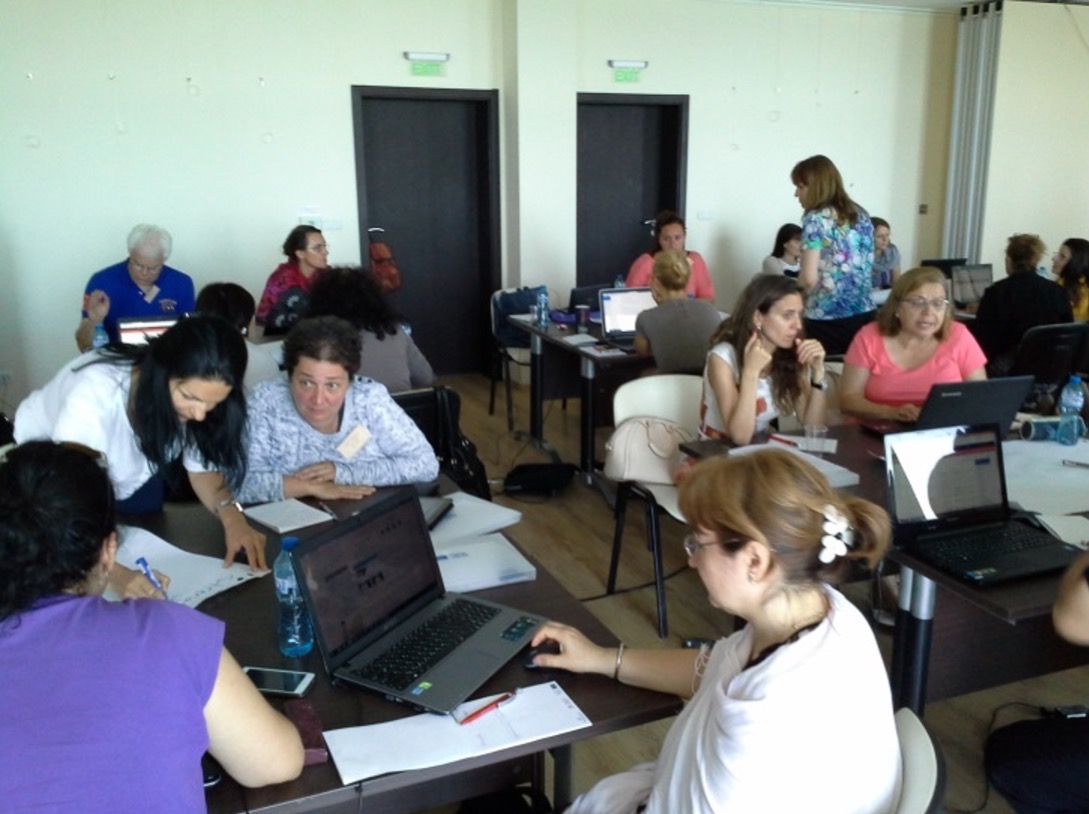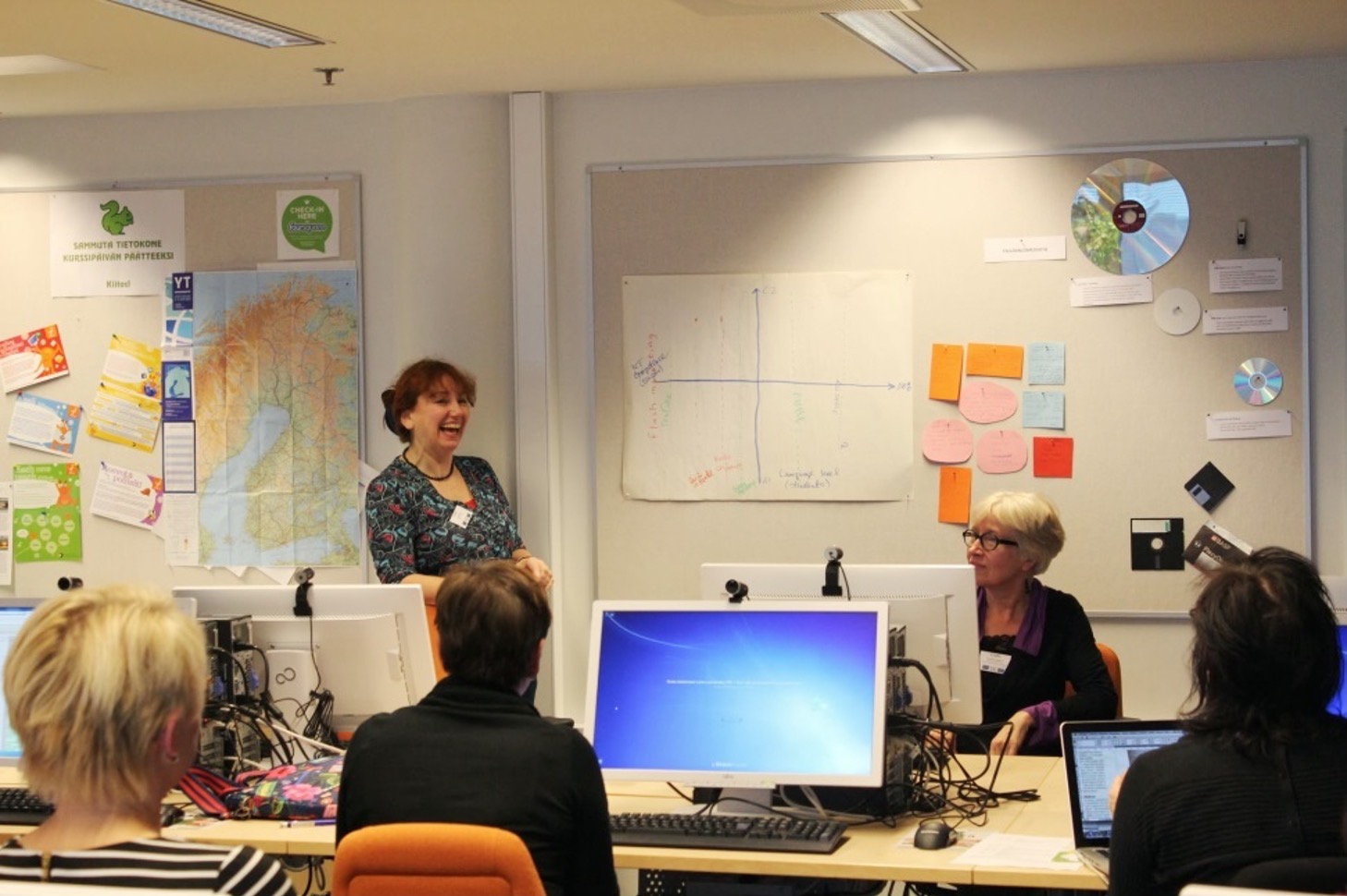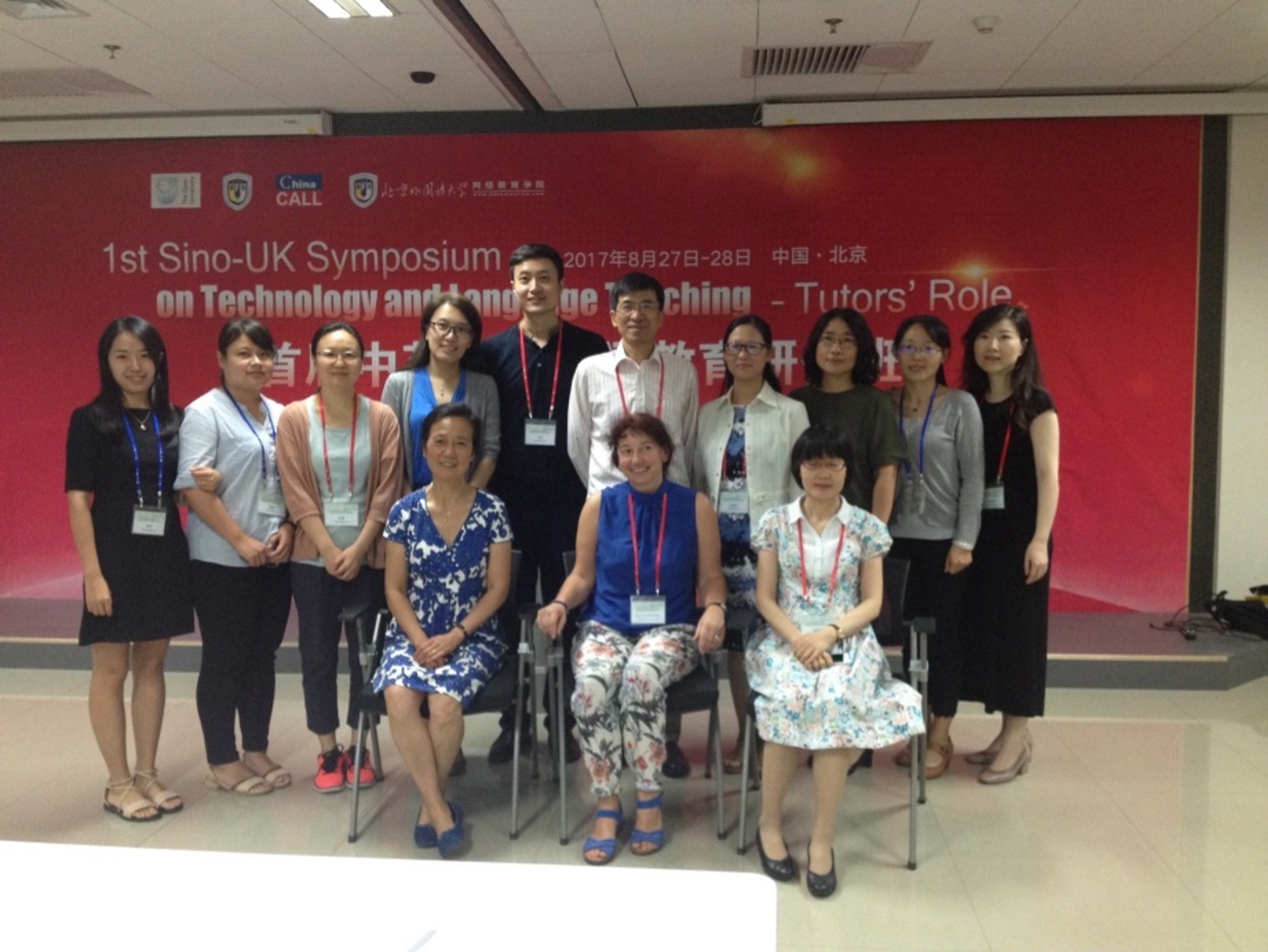Supporting language teachers in Europe to teach online
Online language learning opens the door to new opportunities for people of all ages and backgrounds, whether they be career opportunities or the chance to achieve greater personal fulfilment through learning, driven simply by a love of language.
However, many language teachers are not properly prepared to use the ICT tools they need to offer that learning, either in the classroom or remotely. And in the UK, where language learning is not compulsory, there has been an overall decline in language skills. As lecturers and researchers at the OU, a pioneer in supported online language learning, we believe the online medium is a powerful means of making affordable, accessible language education open to all. So we set out to explore and understand what could be done to support best practice online language teaching across Europe and beyond.
In 2006, the European Parliament and the Council of Europe listed both foreign language communication and digital competence among their recommended eight key competences for every citizen. To meet this need, any organisation responsible for supporting the professional development of language teachers must educate teachers in how to bring Information and Communication Technologies (ICT) into their language teaching.
However, there was no clear definition of how to effectively teach language teachers how to use ICT in their lessons, particularly online. Clearly, research was needed, and so a group of us – language teachers and researchers from across Europe and beyond – set out to develop a comprehensive framework for the professional development of language teachers who teach online, or who use online tools in their classroom teaching.

Participants at the Bulgarian ICT-REV workshop in Burgos
What makes good online language teaching?
Between 2003 and 2013 we undertook two phases of research. In the first we attempted to define what successful online language teaching looks like and scoped out the skills that language teachers need to deliver it. In the second we developed, tested and evaluated a framework for training language teachers that would enable them to provide successful language teaching online.
By observing tutorials and surveying online teachers we identified seven skills levels that formed a teaching model, including basic ICT competence, specific technical knowledge and the skills to make good use of technologies to enhance learning.
We also developed and tested a six-week online training programme that enabled twenty online language tutors to work in small groups and design an online collaborative activity. The results showed that teachers found the ‘hands-on’ experience of online collaboration helped them developing skills and learning insights. This proved our hypotheses that there is no set of ‘teachable’ skills for online language teaching; skills don’t arise from teachers being told what to do, they grow from experience and increased competence. Another training programme consisting of five face-to-face workshops revealed the importance of ongoing mentoring, constructive feedback and peer support, particularly for novice tutors.
In the second phase we surveyed teachers from 25 European countries (member states of our sponsor, the European Centre for Modern Languages (ECML)) to create a ranked list of ten useful ICT tools for language teaching. We then created training activities for these ten tools, trialled them with 56 language teachers, and used the feedback to adapt them further.
The outcome was an online training kit that enables language teachers to choose the tools they want to explore and then use them to work through a series of bite-size activities that enhances their skill and experience in teaching with ICT tools. The project also established a self-sustaining online community that enabled teachers in training to support each other, share best-practice examples of teaching that uses ICT tools, and to make and share new activities. In all, this body of research has resulted in a comprehensive framework for the professional development of language teachers who teach online.
Video by the ECML introducing our DOTS project, Ursula Stickler
How our research has enhanced online language learning
Between 2013 and 2019, the ECML, which has 34 member countries in Europe, funded national workshops in its member countries to spread the word and introduce as many people as possible to the new professional development framework.

Ursula Stickler an participants at the Finnish workshop in Turku
Of the 10 most-frequently accessed tools, ICT-REV inventory is number 1.
The Head of Administration and the Deputy Executive Director at ECML
The Head of Administration at the ECML has said that the workshop based on our work – known as the ICT-REV workshop – is one of the most popular they offer, and that it is highly regarded by the governing board who “constantly send us extremely positive feedback about the workshops that have taken place in their different countries… we get it first-hand from people who are working in Ministries of Education, and that’s very important for us”. Between January 2019 and January 2020, the inventory was accessed more than 150,000 times.
Our ongoing interaction with language teachers in settings from primary schools to universities has highlighted the need for advice or support in finding and selecting suitable tools. Not all teachers have the funding to pay for apps or online tools, and the range of tools on offer is vast. So, to meet this need, we have created an online inventory of freely available apps, tools and resources that are especially suitable for language teaching.
Video by the ECML introducing our ICT REV project, Martina Emke, German
Video by the ECML introducing our ICT REV project, Aline Germain-Rutherford, English
The ICT-REV workshops are now changing teaching practice across Europe and beyond. A workshop in China was livestreamed to around 27,000 people, while a member of the Institut National Des Langues in Luxembourg has told us that members of its staff who are usually resistant to change have been persuaded, through engagement with our workshops, to change their practice. Members of the ECML board have also described a “snowballing” effect, observing that many of our tools and ideas are now being formally and informally passed on to other teachers.

Front row: Dr Kan Qian (Senior Lecturer in Chinese at The Open University), Dr Ursula
Stickler (Senior Lecturer in German at The Open University) and Prof Jinlan Tang from
Beiwai Online, Beijing Foreign Studies University.
Standing: volunteers at the Beijing workshop.
Results
I think it [the workshop] has helped me actually to teach less and less and to create situations for learning more and more.
An online language teacher who attended an ICT-REV workshop held in Ireland
Vast numbers of teachers who have engaged in our workshops say they have had a positive impact on their practice. For example, when a six-month follow-up questionnaire was sent to 138 workshop participants from Lithuania, Austria, Sweden, Spain, Ireland and Bulgaria 63% said they were using ICT tools and activities with more confidence and on a more frequent basis in the classroom. 63% also said they had promoted the use of our ICT tools and activities to others.
We’re delighted to say that our research has both shaped the way that language teachers are taught to use online teaching tools, and has so far helped 4,000 language teaching professionals in 27 countries to improve their online language teaching. Through this research, they can achieve their career and personal goals to be better teachers, and students can enjoy a higher quality of distance learning.
Further reading:
Stickler, U., Hampel, R., & Emke, M. (2020). A developmental framework for online language teaching skills. Australian Journal of Applied Linguistics, 3(1), 133-151. DOI: https://doi.org/10.29140/ajal.v3n1.271
Written by Ursula Stickler, Senior Lecturer; Regine Hampel, Professor of Open and Distance Language Learning; Tita Beaven, Senior Lecturer; Sarah Heiser, Associate Dean Student Tuition, Martina Emke, Affiliated Researcher EdD, The Open University
Research enquiries
For research enquiries email:
[email protected]
For student and degree enquiries email:
[email protected]
